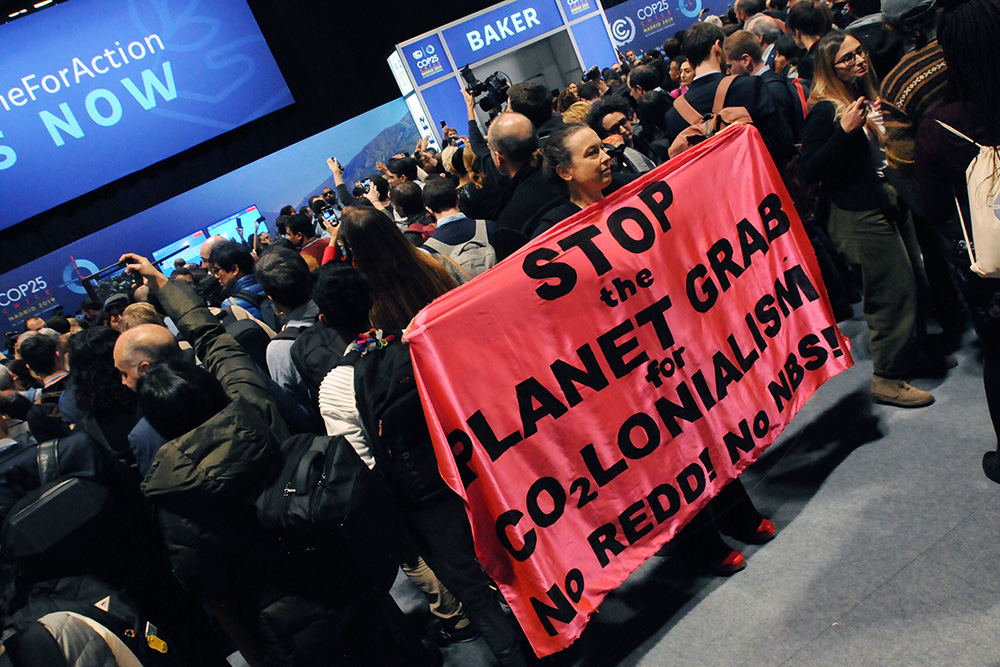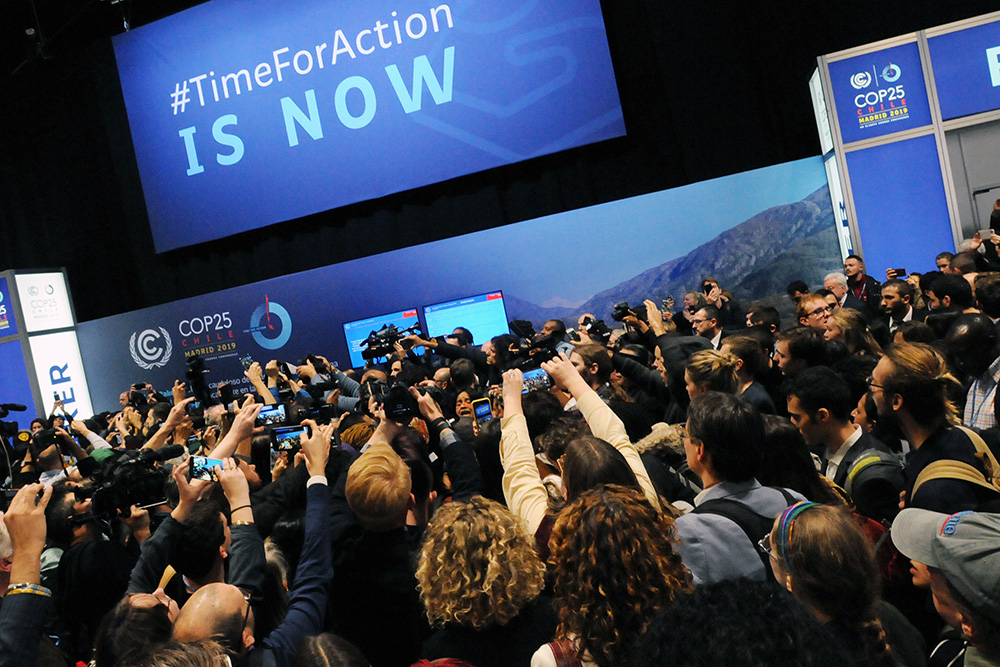Summary
Events Covered on Wednesday, 11 December 2019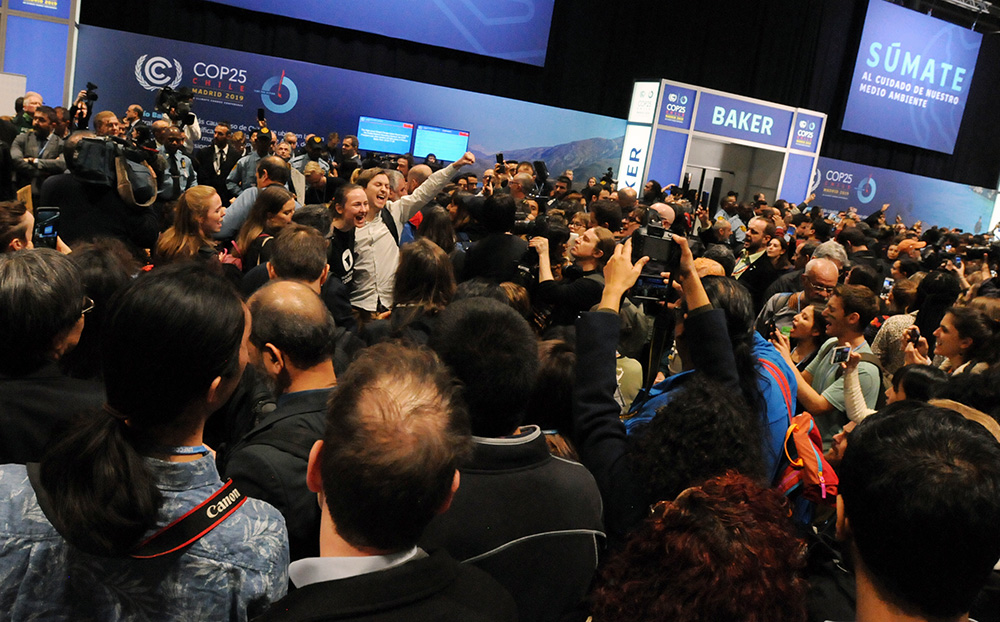
The following events were covered by IISD Reporting Services on Wednesday, 11 December 2019:
Text written by IISD/ENB | Wanja Dorothy Nyingi, Ph.D., and Tallash Kantai
Photos by IISD/ENB | Diego Noguera
For photo reprint permissions, please follow instructions at our Attribution Regulations for Meeting Photo Usage Page
The GCF First Replenishment (GCF-1)
Presented by the Green Climate Fund (GCF)
Posted by IISD Reporting Services video for Friday, 13 December 2019
This high-level event considered how the GCF can ensure the delivery of catalytic projects that support a transformative shift towards climate action. The USD 9.8 billion replenishment to the GCF provides powerful momentum to innovate, accelerate, and scale up climate finance, moving beyond “climate finance as usual” to rapidly increase the flow of investment to the most vulnerable.
Yannick Glemarec, GCF Executive Director, moderated the event, underscoring the GCF’s commitment to ensuring low carbon emissions projects in the south receive a fighting chance.
Shinjiro Koizumi, Minister of the Environment, Japan, called for additional contributions to the GCF from responsible parties including, among others, China. Stating that the biggest challenge in the climate discourse is connecting funding to climate action, he noted that Japan has increased environmental, social, and governance investment by USD 1.3 trillion, including for climate-friendly technologies. He called on the GCF to take the lead in investing in technological initiatives by youth, which address climate change, adding that Japan would be willing to invest in a green bond if the GCF issues one.
Presenting on tracking climate investments and financial flows, Barbara Buchner, Executive Director, Climate Policy Initiative (CPI), reported that 2017-2018 records the first time that climate finance has reached the half-trillion dollar mark. However, she emphasized that this is nowhere near what is required to achieve the Paris Agreement, noting that financing adaptation continues to lag behind mitigation. She highlighted the need to phase out investment in the fossil fuel supply chain, which is receiving more than three times the investments in clean energy. She called on governments to raise ambition, and for the scaling up success stories and for financial actors to align with the Paris Agreement.
Isabella Lövin, Deputy Prime Minister and Minister for Environment and Climate, Sweden, underlined that financing is at the heart of trust between developing and developed countries in the climate change negotiations. She highlighted the important role of the GCF as well as other financial mechanisms, and called for partnerships with pension funds and the insurance industry to finance climate action. Underlining that the GCF “can be a success story,” she noted that it has the potential to create success stories of climate action.
Fabiola Martha Muñoz Dodero, Minister of Environment, Peru, highlighted that high bank loan interest rates are a constraint to communities, particularly forest people and small-scale farmers, to practice profitable and sustainable use of land resources. She urged increasing ambition in providing financial mechanisms to enable access to loans and grants, scale up projects, and adapt to climate risks. She highlighted the importance of innovation and capacity building, particularly related to green energy.
Lamin Dibba, Minister of Environment, Climate Change and Natural Resources, The Gambia, outlined his country’s national climate policy, led by a climate secretariat, to build climate resilience at the grassroots level as well as mainstream climate change into ministerial planning processes. Lauding support from the GCF and noting the need to review access to funding procedures, he highlighted a coastal zone protection project, and forest and land restoration projects, and called on donors to provide financing for adaptation.
Yeshey Penjor, Minister of Agriculture and Forests, Bhutan, drew attention to the Gross National Happiness Index, applied in his country, remarking that food and health, important indices of happiness, are threatened by climate change. He reported ambition raised by the Middle-Path National Environment Strategy. He further highlighted GCF support for climate resilience and transformation of agriculture through the Bhutan for Life Project that has allowed conservation of protected areas, which supports ecotourism, and proceeds that support other economic activities.
Simon Stiell, Minister of Climate Resilience, the Environment, Forestry, Fisheries, Disaster Management and Information, Grenada, stressed the need for a vision and ambition to address the vulnerabilities faced by small island developing states (SIDS), noting the need for genuine financial and capacity-building partnerships. He pointed to the establishment of Saint Georges as the first climate resilient city, noting that its transformation requires multi-stakeholder and multi-donor support to meet the financing goal of USD 500 million per year.
Pierre Heilbronn, Vice President, Policy and Partnerships, European Bank for Reconstruction and Development (EBRD), noted that the partnership between EBRD and the GCF proves that we change lives when we work together. Emphasizing the role of multilateral development banks (MDBs) in the climate discourse, he called for a focus on: articulating climate policy; implementing Paris Agreemet alignment across MDBs; and moving from the project level to sectoral plans.
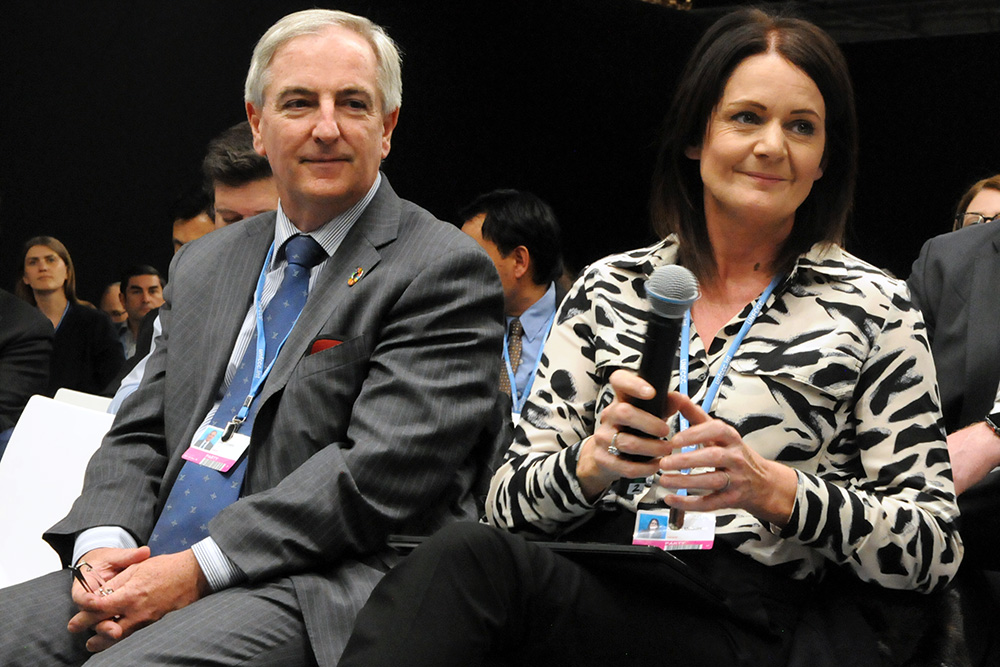
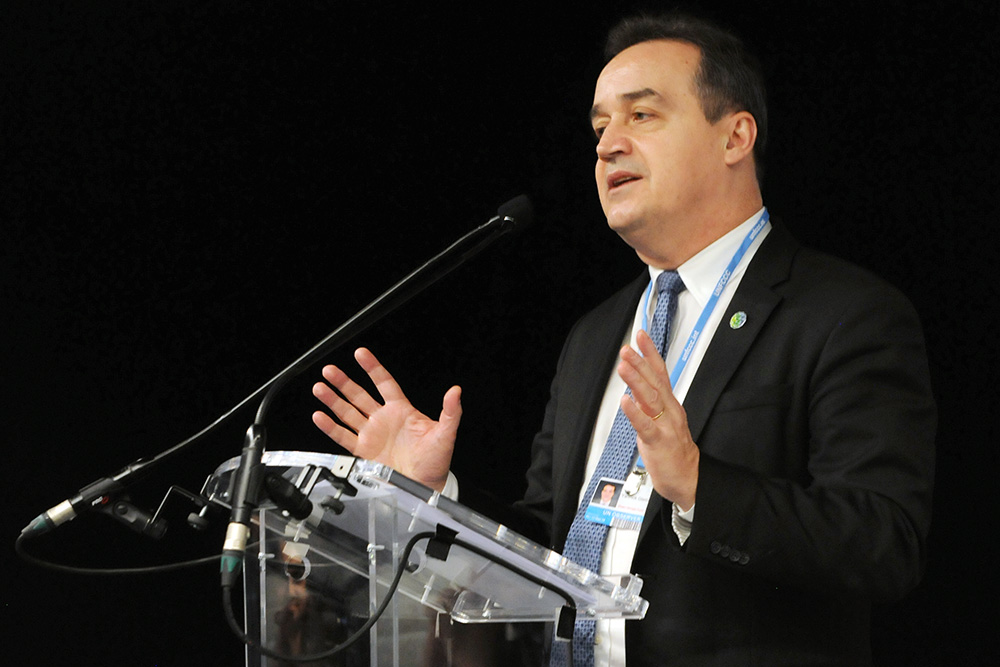
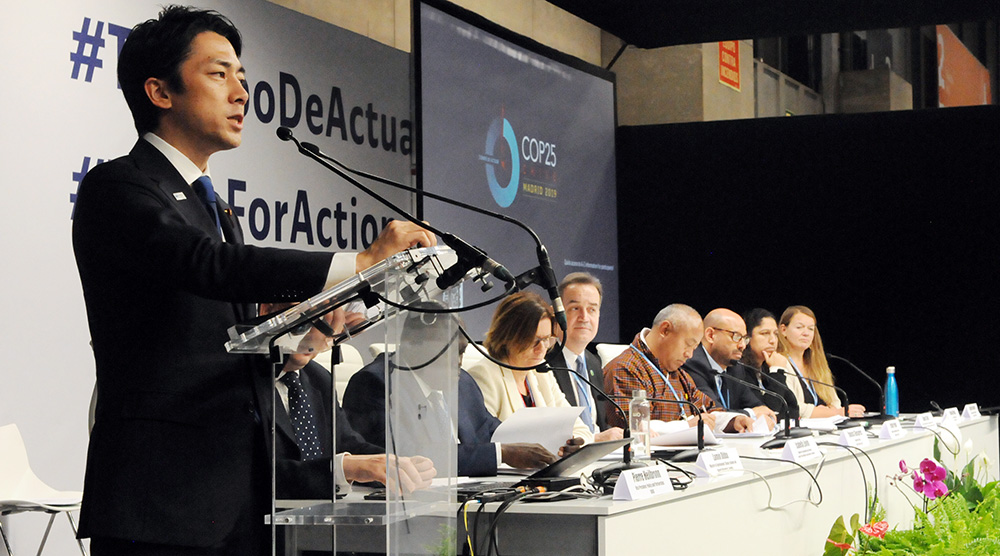
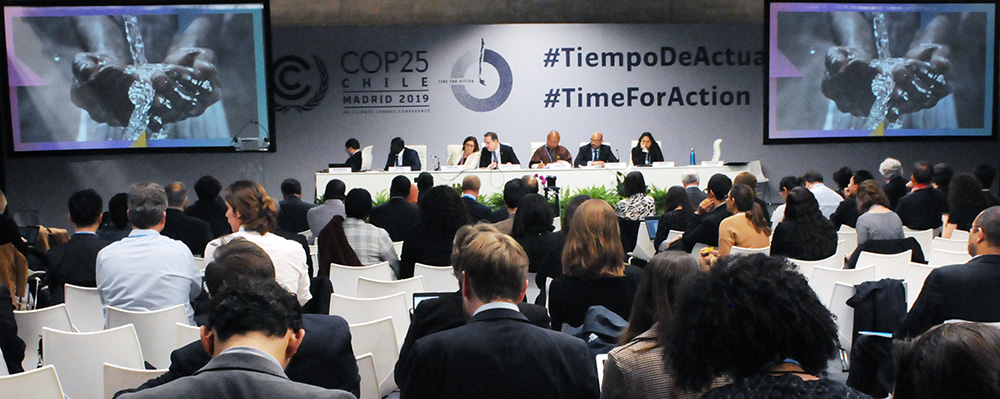
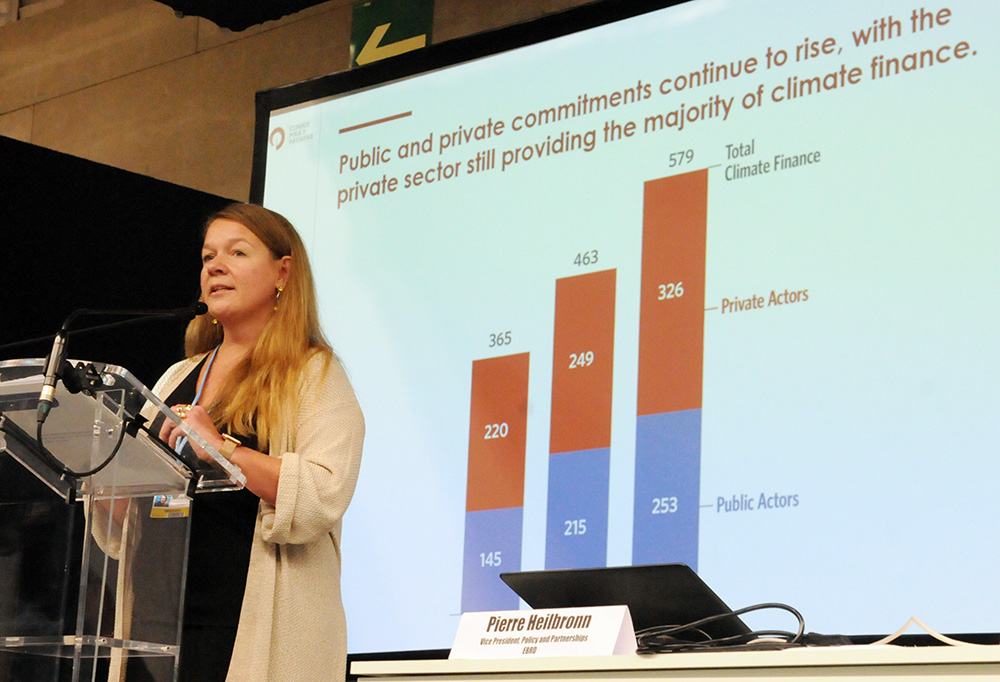
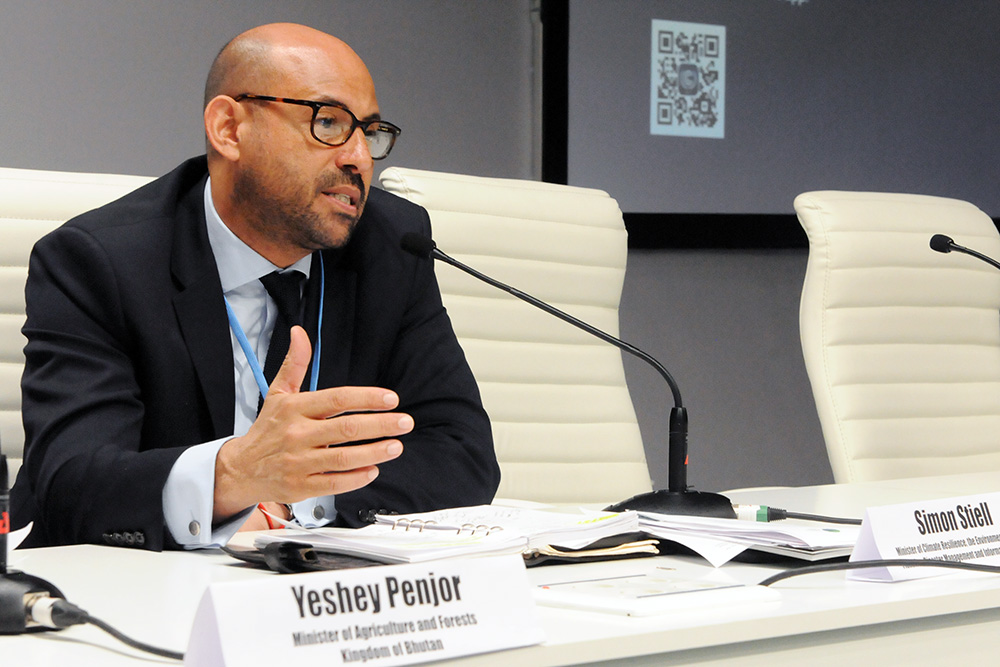
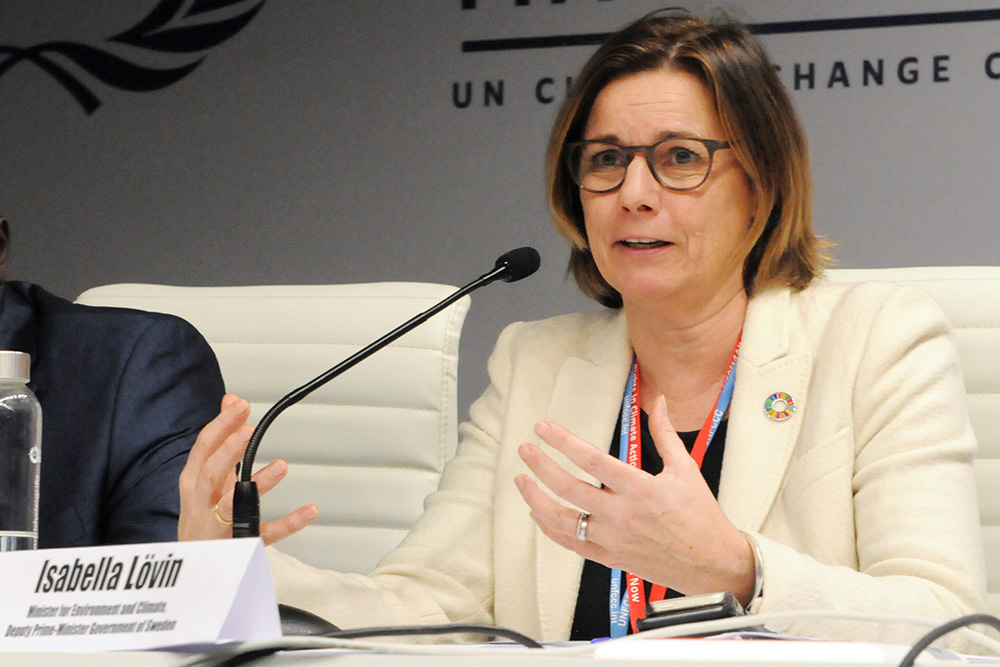
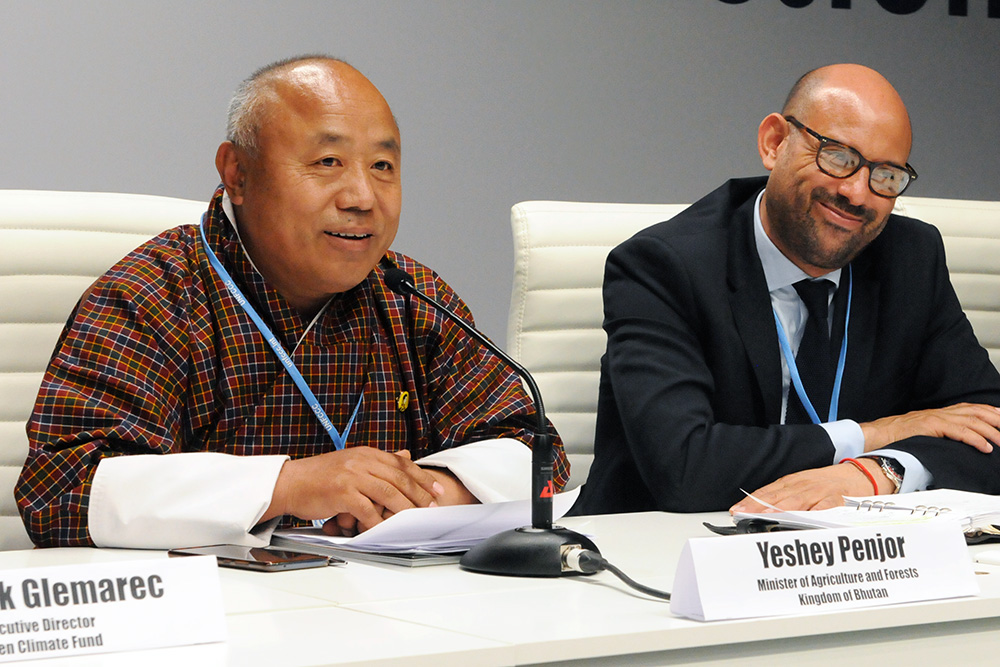
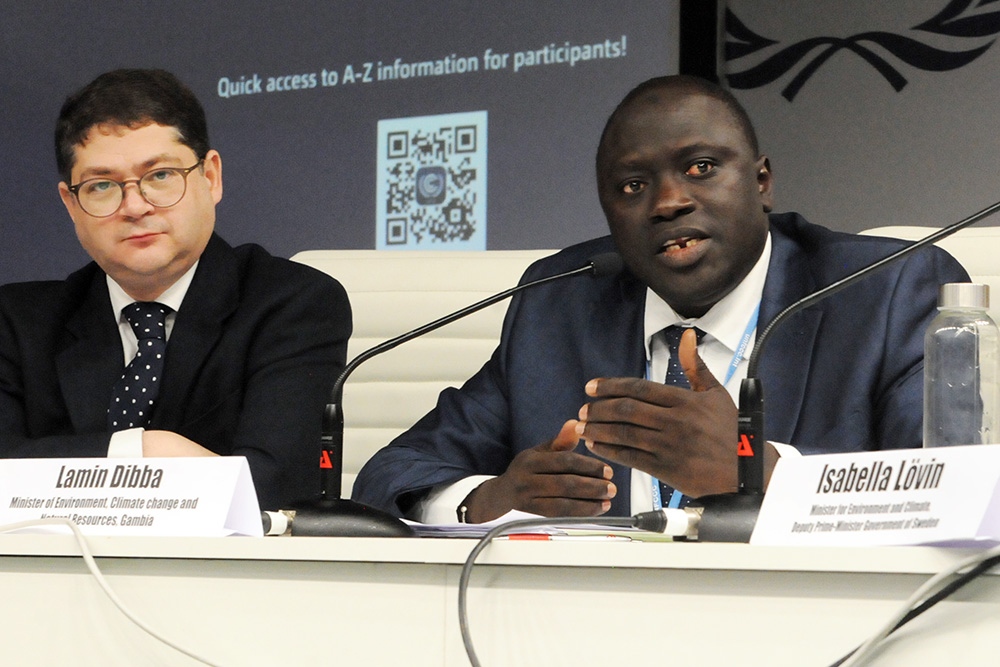
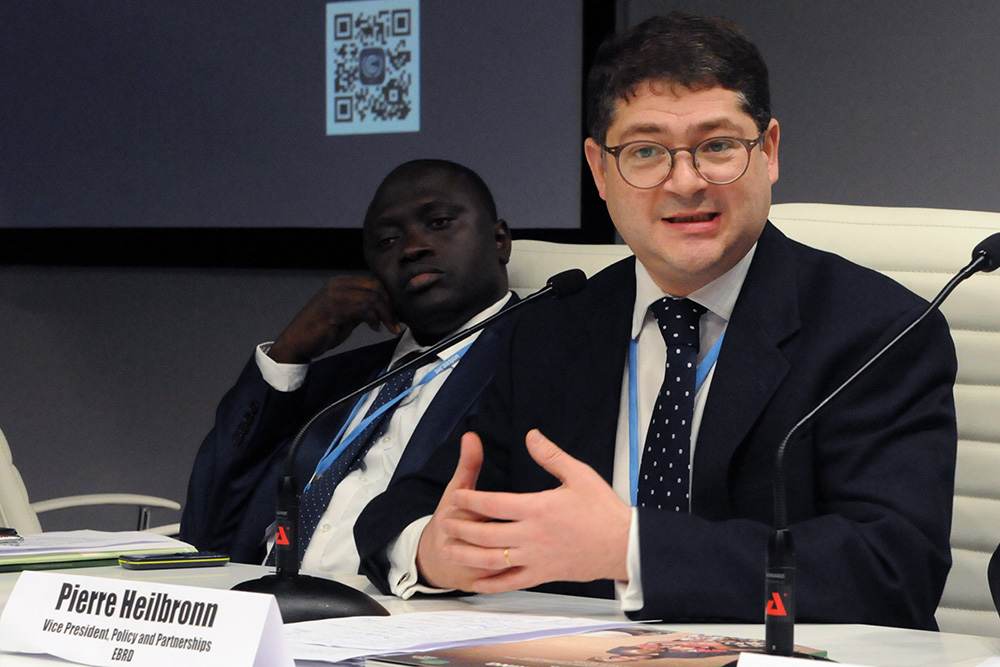
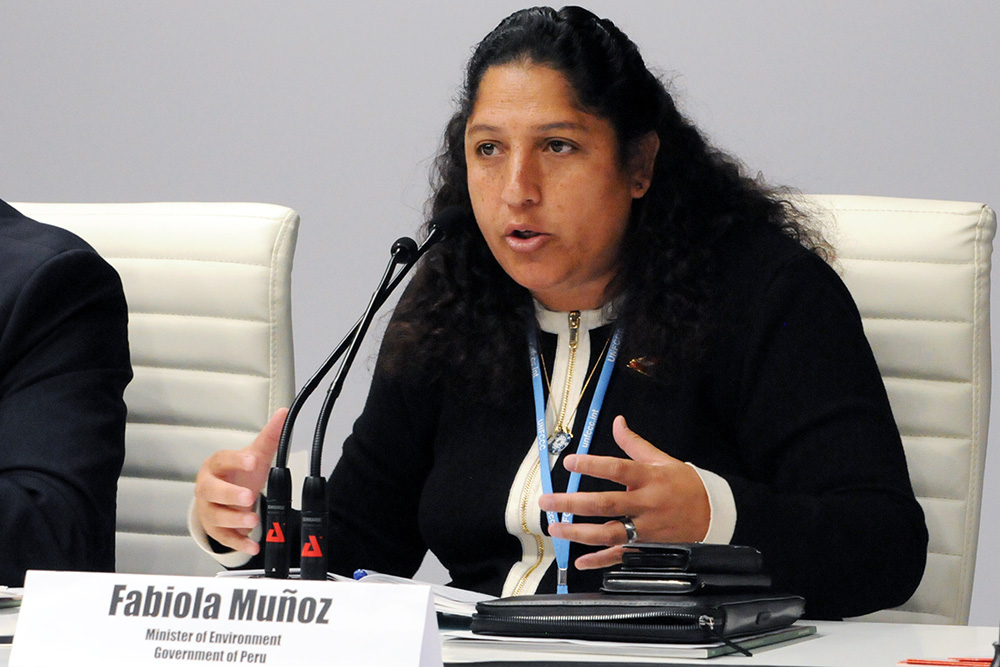
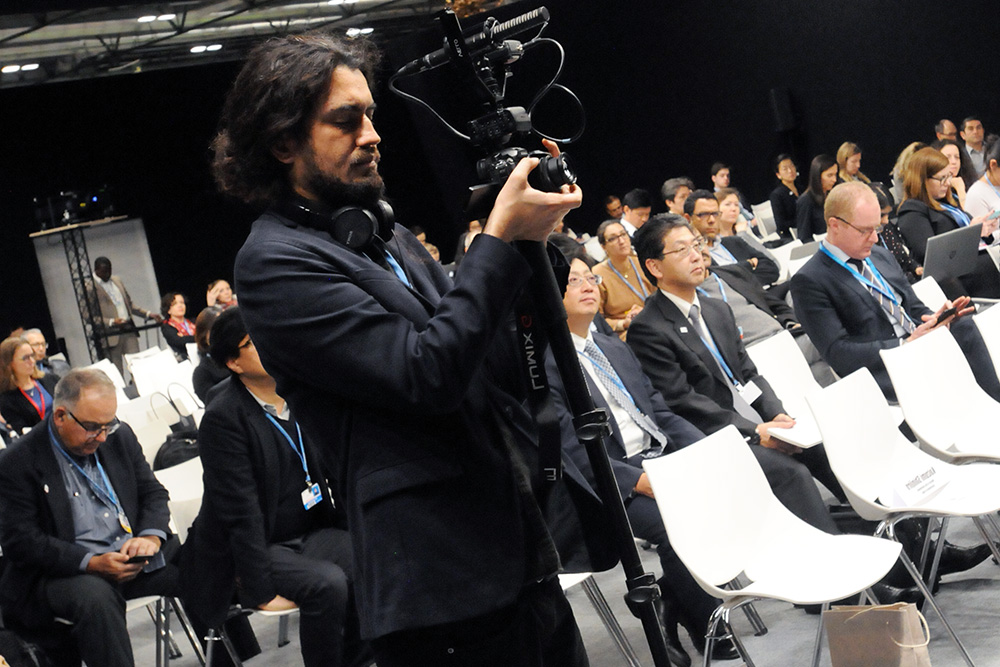
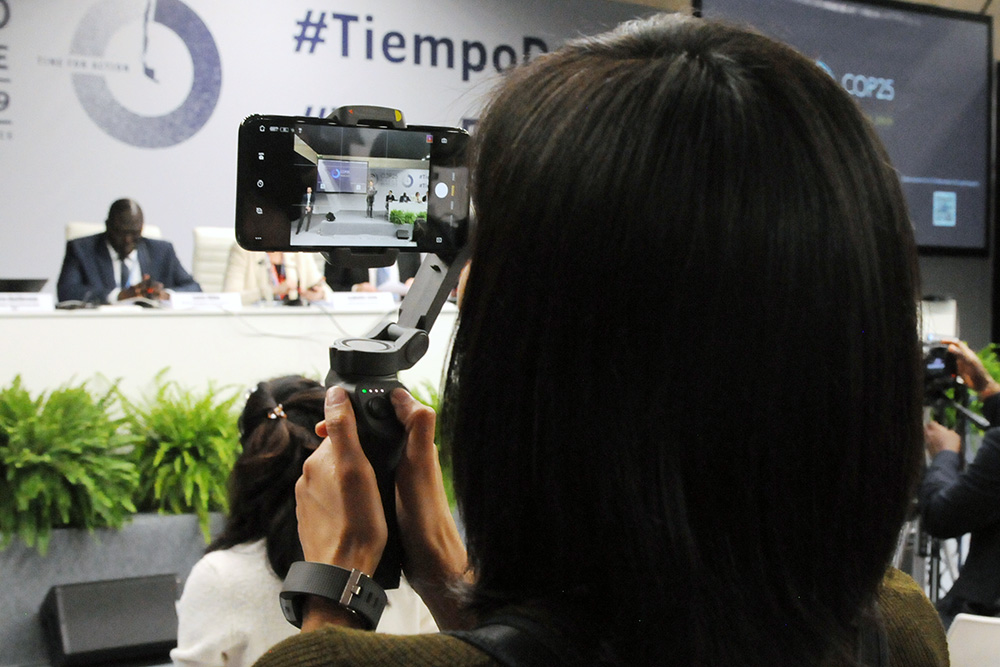
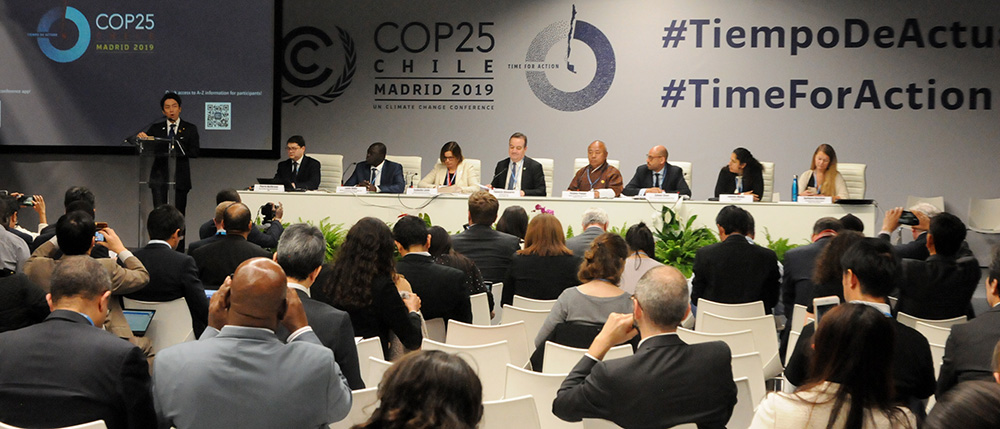
Enhancing Climate Solutions through Sustainable Food Systems
Presented by the Food and Agriculture Organization of the UN (FAO), the International Fund for Agricultural Development, the World Food Programme, the UN Environment Programme, the UN Industrial Development Organization, the Convention on Biological Diversity, the International Telecommunications Union, the International Trade Center, and the World Wildlife Fund
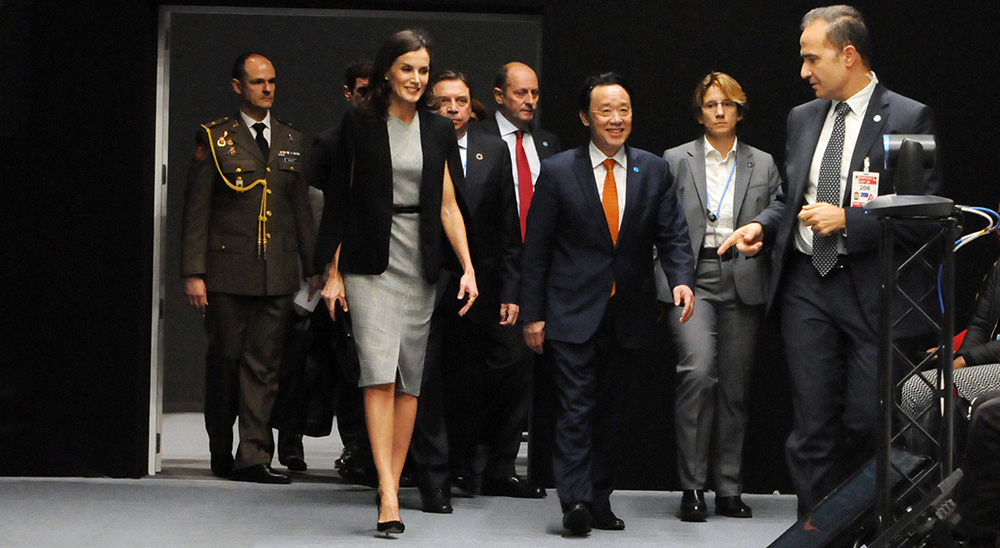
The transformation of global food systems is key towards achieving the Sustainable Development Goals (SDGs), and sustainable food production and consumption are critical for increasing both human and ecological capacities to cope with climate change. This event focused on holistic diagnostic approaches, building effective partnerships and examples of practical solutions, to spin the transformative wheel of sustainable food systems.
This high-level event was attended by Queen Letizia Ortiz Rocasolano of Spain. Moderator Zitouni Ould-Dada, Deputy Director of the Climate and Environment Division, FAO, referred to the 2030 Agenda for Sustainable Development as a global journey to achieve a world for nature and people, underscoring that adequate food is required if we are to reach this destination.
Qu Dongyu, Director-General, FAO, noted that contemporary food systems are not meeting food security goals, and remain high emitters of carbon. He reported that while over two billion people are overweight, 821 million people do not get enough food to eat. He highlighted the importance of innovative solutions and partnerships to address climate change which impacts small-scale farmers ability to adapt food production systems. He highlighted FAO’s work in sub-Sahara Africa to improve food production and market chains, and support adaptation and mitigation strategies, and drew attention to the role of the private sector in sharing information, technologies, and finances.
Luis Planas, Minister of Agriculture, Fisheries and Food, Spain, spoke about the country’s irrigation and water recovery policies in the agricultural sector, noting that the use of recovered water for irrigation drives down food prices, thus helping to address SDG 2 (zero hunger). He noted the need for reclaiming wastewater, highlighting the use of new irrigation technologies to safely use this reclaimed water. Noting that by 2030, Spain intends to halve food losses throughout the food chain, he: discussed the “More Food, Less Waste” strategy; and underscored the need to promote good practices, innovation and research, as well legislation to implement the strategy.
Yasmine Fouad, Minister of Environment, Egypt, noted that the country has developed a 2030 Vision aligned with the SDGs, with a particular focus on feeding children. She drew attention to the need to promote smallholder farming, increase access to markets, and address the challenges facing women farmers. Fouad then discussed adaptation practices that reduce crop losses for smallholder farmers during climate-related droughts, by linking these farmers to cooperative groups in order to access irrigation schemes and early warning systems.
Bertrand Piccard, Solar Impulse Foundation, said our current food, energy and natural resource use systems are wasteful, and compared this to filling a tub with a leak by keeping the tap running, rather than sealing the leak. He noted that profitable solutions exist including organic agriculture, which he said requires “common sense,” adding that technology can also deliver sustainable solutions. He presented an innovation by his organization, allowing supermarkets to turn food that has exceeded its sell-by date into electricity.
Lena Pripp-Kovac, Chief Sustainability Officer, Inter IKEA Group, emphasized the need to ensure that healthy, quality food is available for all regardless of economic status. She discussed the need to promote plant-based diets, and reported on IKEA’s initiatives to manage food waste in the supply chain, and innovative kitchens adapted to healthy diets.
Marco Lambertini, Director-General, WWF, noted that in the last 60 years, the world has made immense socio-economic progress, but highlighted this has been at the expense of the planet. Noting the heavy footprint of food production on the planet, he said the world is reaching a point where we need to “produce more and better food with less land, less water, less chemicals and less energy.” He noted that part of the solution to creating a sustainable food system is a cultural shift where we no longer take nature for granted, stressing that the cost of inaction will be borne most by human beings.
In the panel session, participants and panelists considered, inter alia, the need: for more funding to tackle malnutrition; to address the impacts of social and colonial injustices on food insecurity; and to ensure that the discourses on climate and biodiversity remain connected.
In closing, Piccard noted that if you fight against corruption, in most countries, you will have adequate food and water, while Fouad underlined that nature can accommodate human beings only if we change our practices. Pripp-Kovac called on leaders to scale up examples of good practice, and Lambertini underscored the need to align human health with planetary health.
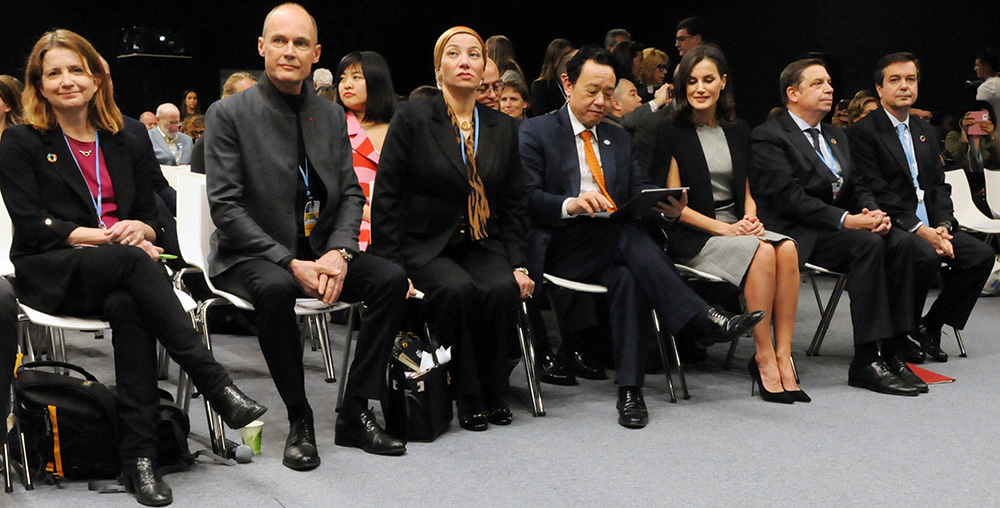
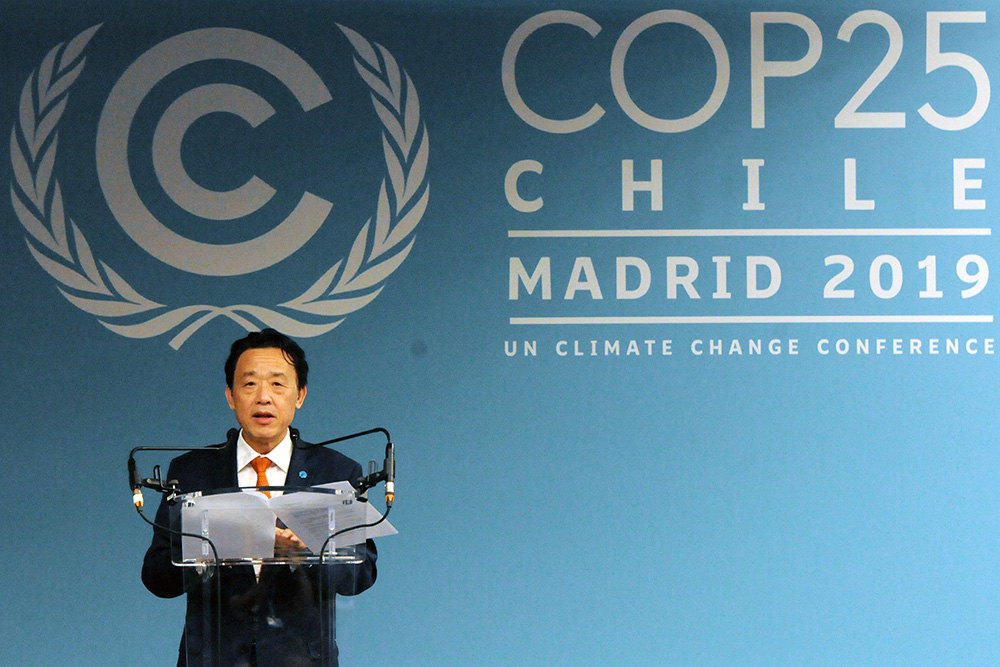
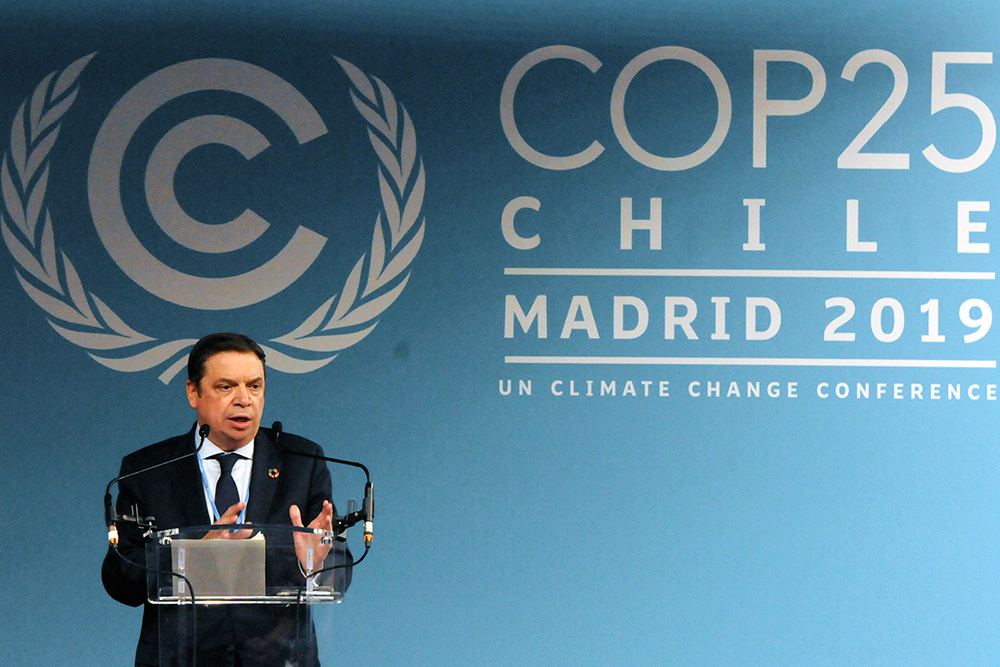
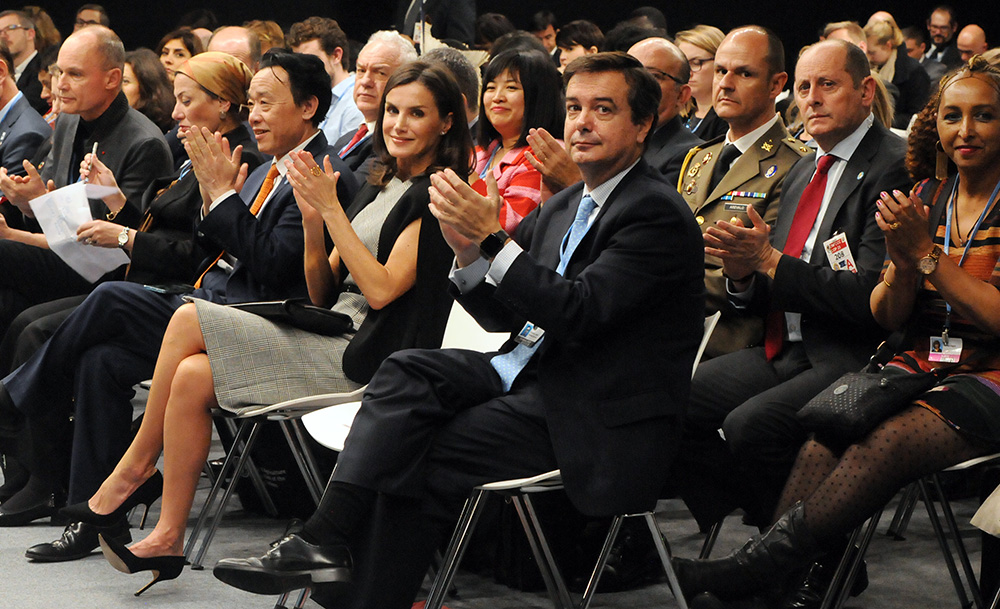
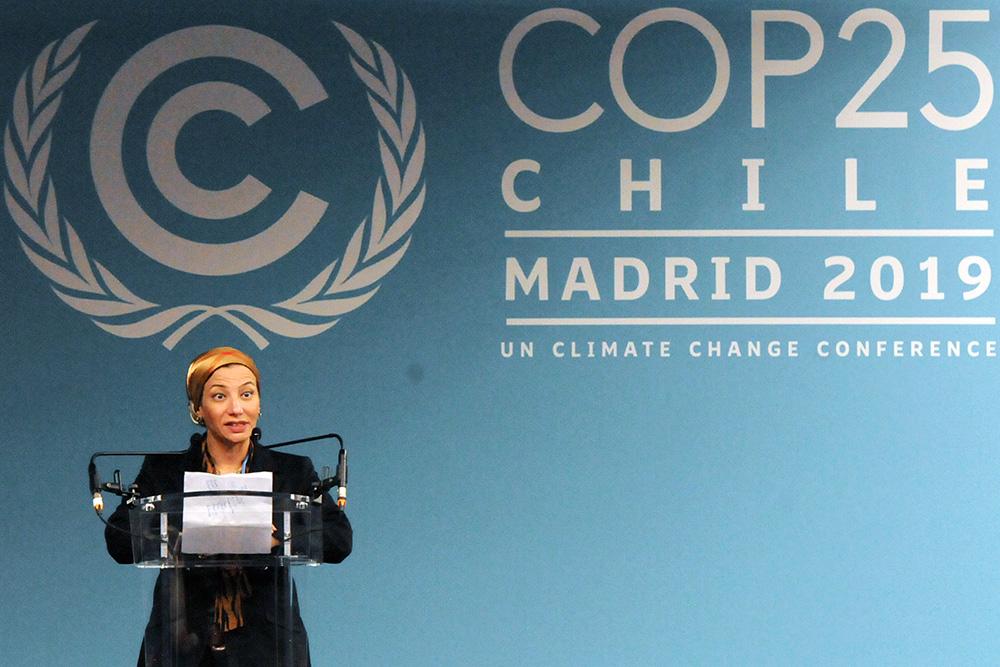
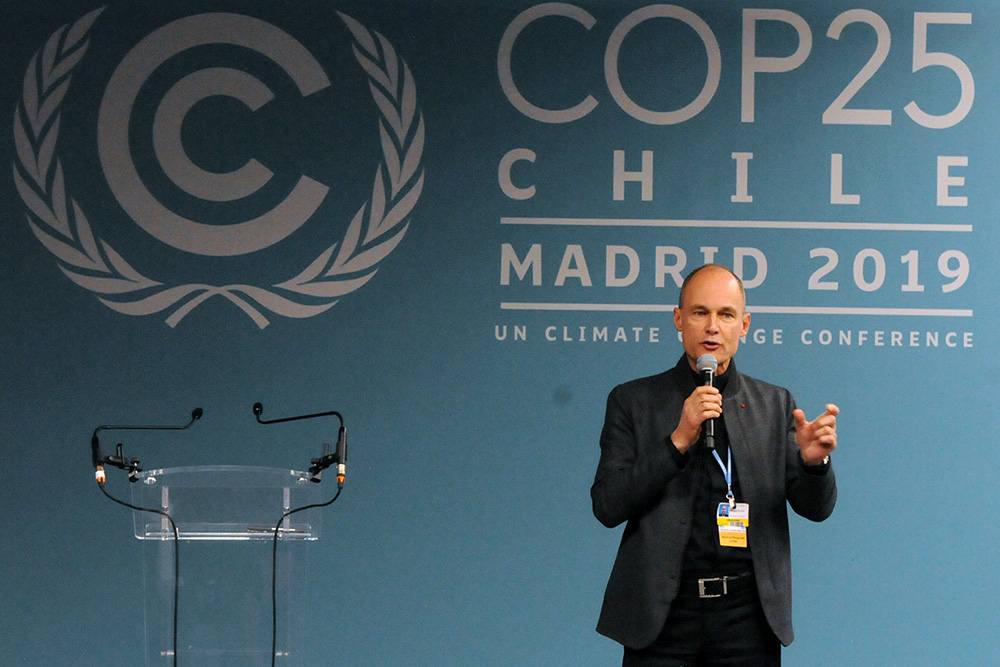
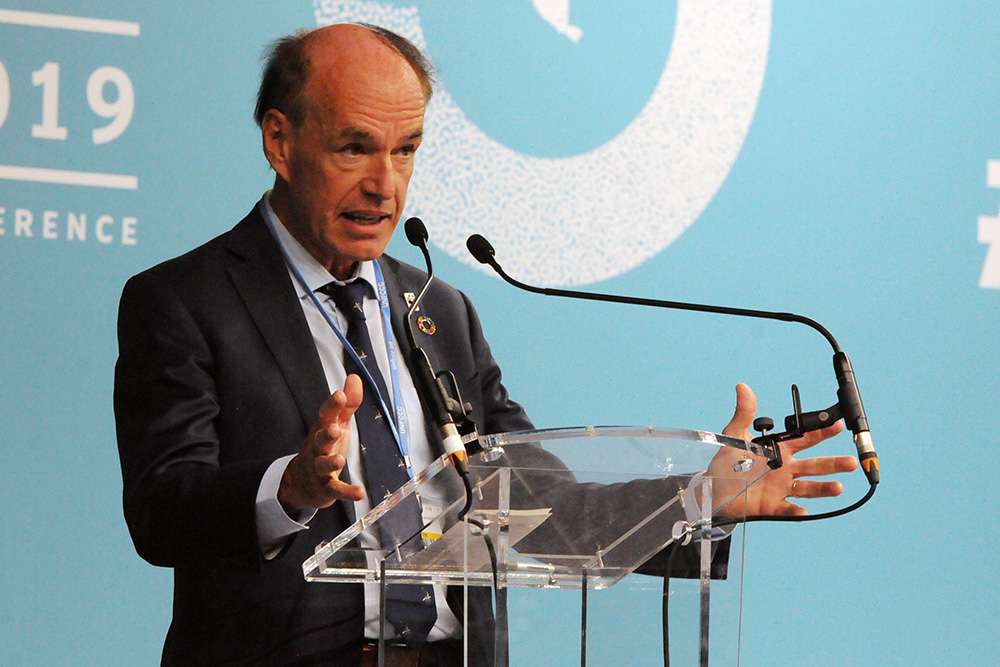
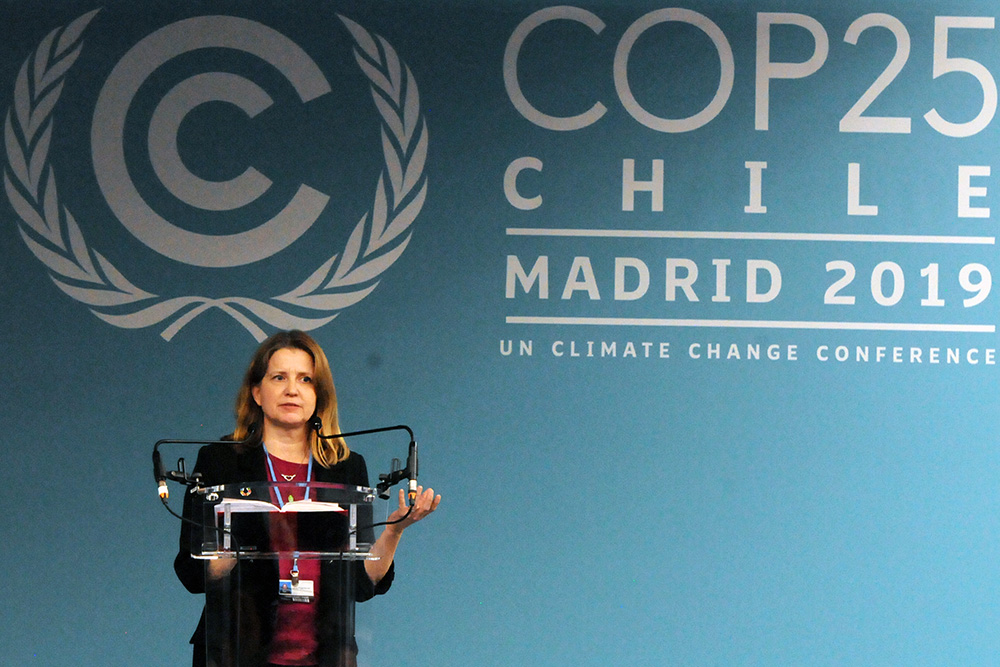
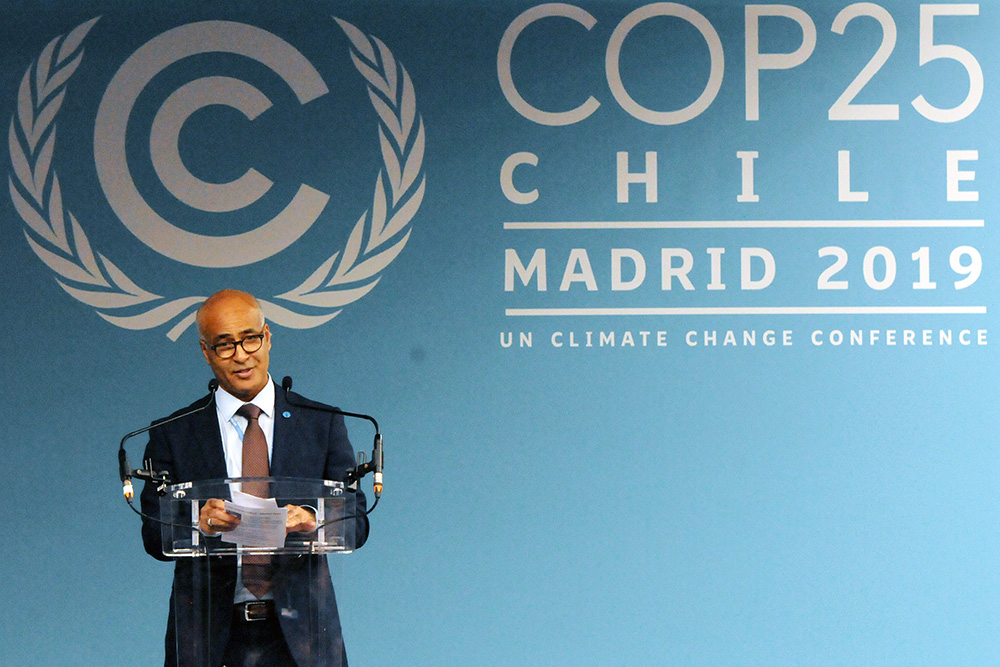
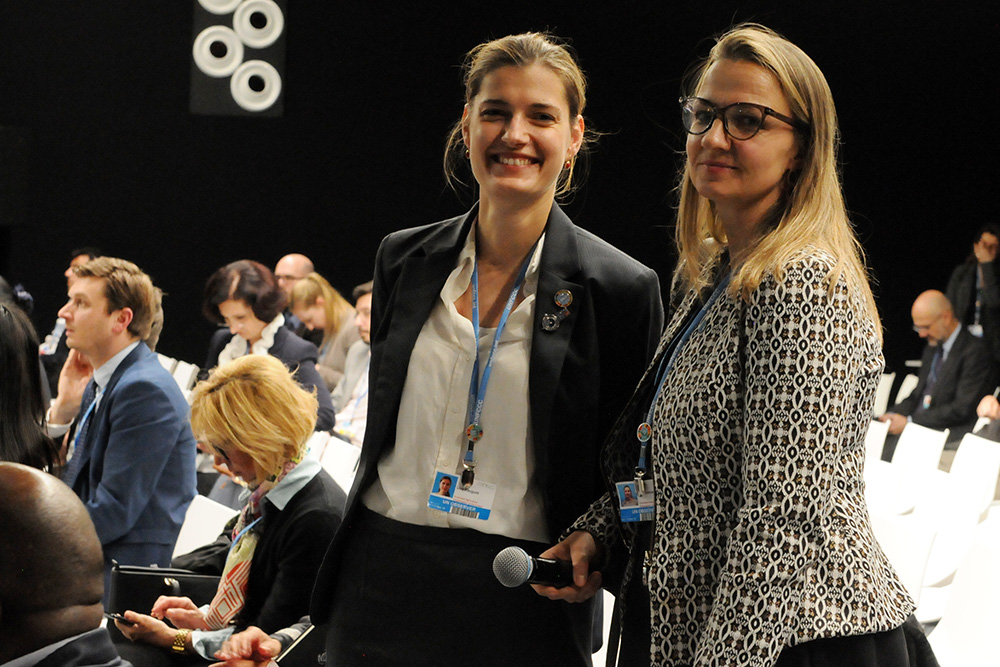
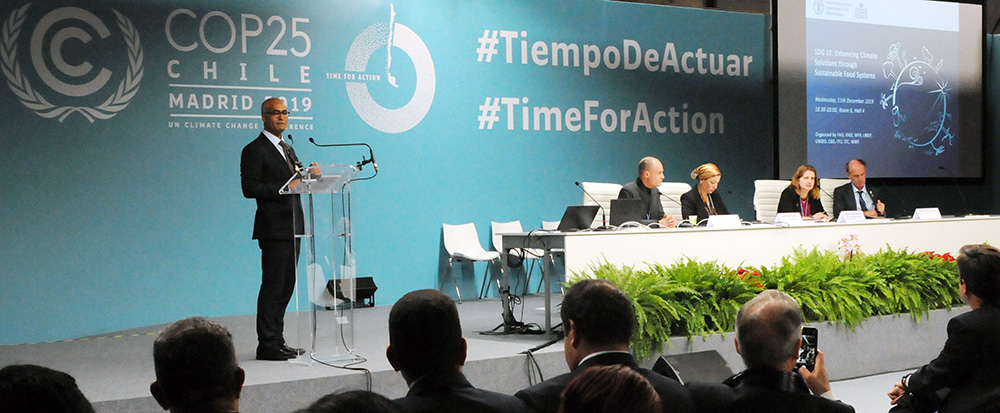
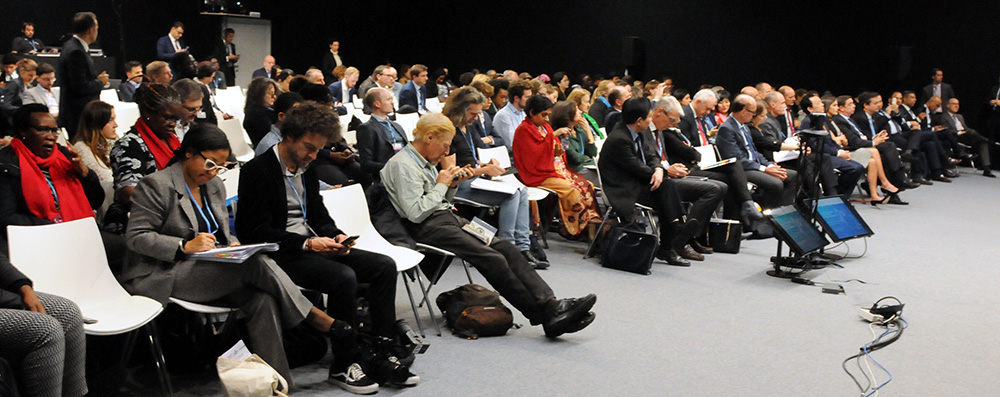
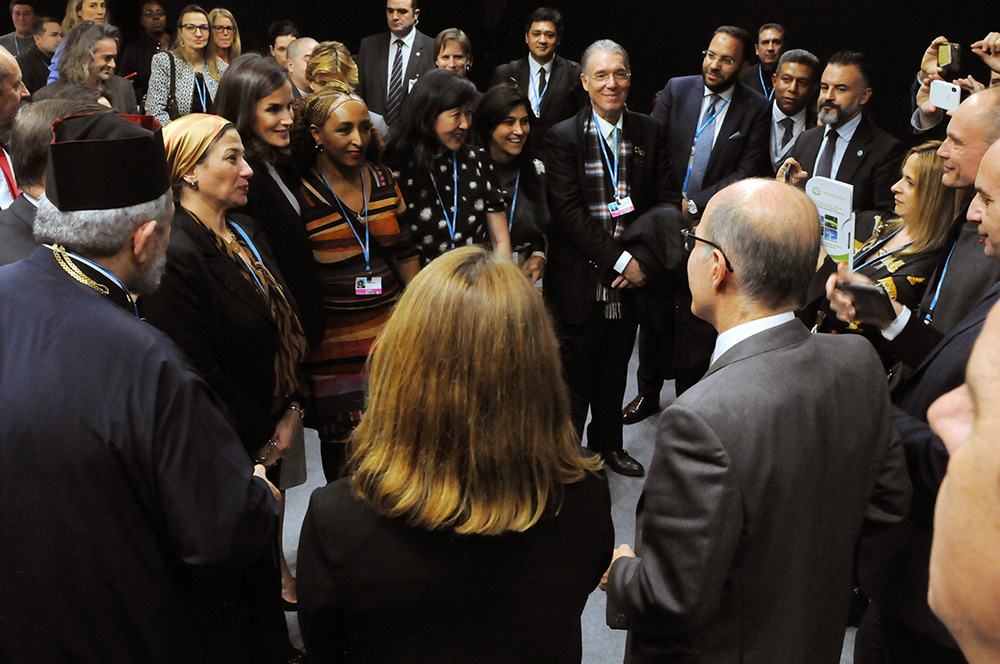
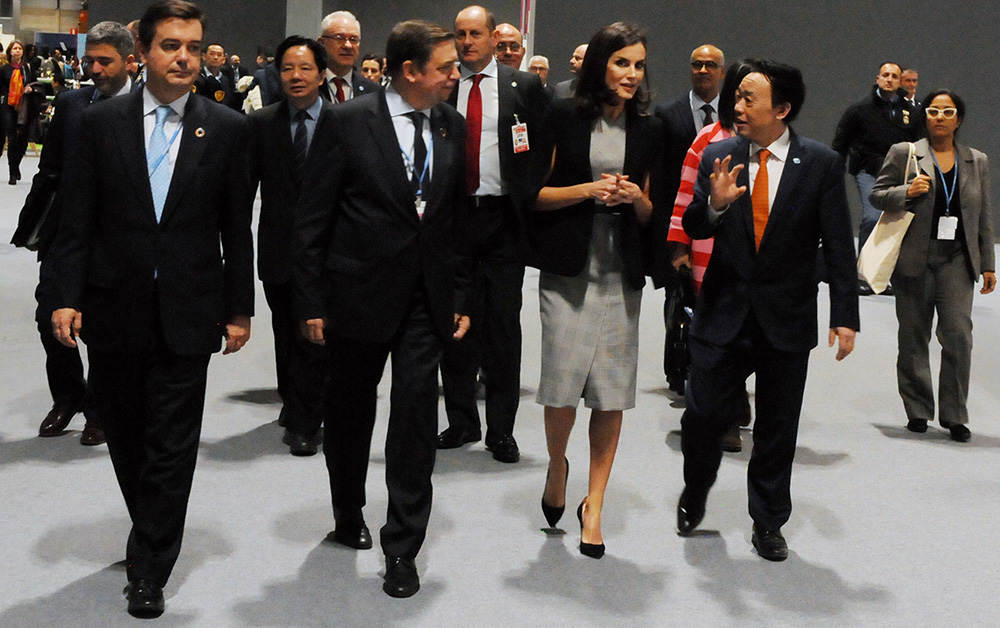
Climate Actions of Guatemala for Compliance with the Paris Agreement
Presented by the Government of Guatemala, Mom Loves Taiwan Association, and International Cooperation and Development Fund (ICDF)
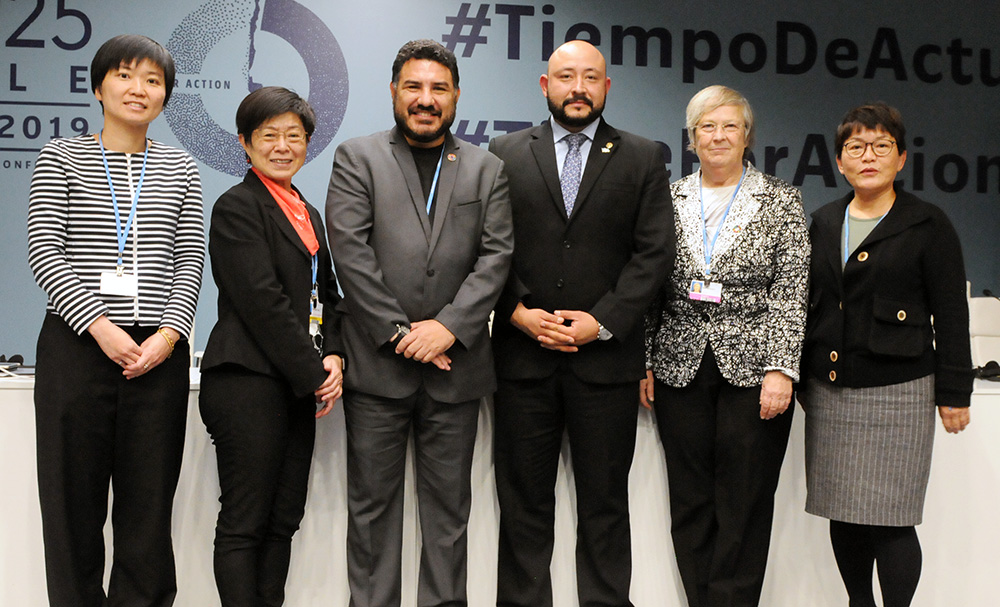
This event aimed to share Guatemala’s progress and best practices in implementing its nationally determined contribution (NDC).
Mario Santos, Ministry of Environment and Natural Resources, Guatemala, in opening remarks, highlighted that implementation of the country’s NDC is people-centric.
Alfonso Rafael Alonzo Vargas, Minister of Environment and Natural Resources, Guatemala, presented on the use of bio-fences to recover floating plastic debris along the Motagua River, and the recycling plant installed in El Quezalito village to handle this waste, while empowering the community with jobs and other economic benefits. He reported that bio-fencing has since been used in other rivers and neighboring countries, and that this innovation is the first of Gautemala's patents. He also presented videos on recovery of natural capital in Guatemala’s Dry Corridor through best practices of climate adaptation and on the country’s forest preservation efforts.
The panel discussion was moderated by Gloria Kuang-Jung Hsu, Director, Mom Loves Taiwan Association. Panelists discussed best practices in Guatemala and around the world in building resilience in vulnerable communities. Hsu stressed that to avoid the catastrophic consequences of inaction on climate change, we need political will and adequate finances, as well as collaboration between government and non-governmental organizations.
Stressing that partnerships are essential for success, Yun-Ching Tseng, Director of Research, Development and Evaluation Department, ICDF, noted that Guatemala’s NDC is focused on the transport and agriculture sectors, and showcased ICDF’s partnership in agriculture, rural development, environment, health, education, and information technology.
Yang Shun-mei , Secretary-General, Mom Loves Taiwan Association, noted that to empower rural communities, we need incentives, innovation, information, infrastructure and institutions. She spoke on the rural development and food security projects for vulnerable groups in Mozambique and Malawi, highlighting various initiatives and projects including in transforming household resilience in vulnerable environments. She highlighted support for farmer field schools, which take into account indigenous knowledge to inform adaptation of farming practices to new climatic conditions.
Bärbel Höhn, Special Representative for Energy in Africa, Federal Ministry for Economic Cooperation and Development (BMZ), Germany, noted that developing countries are the least responsible for emissions yet are at the forefront of climate disasters. She reported that the energy sector is key in achieving several Sustainable Development Goals (SDGs), and that Energising Development (EnDev) partnership, a multi-donor programme implemented by German Development Agency (GIZ) and the Netherlands Enterprise Agency, is providing energy to schools, households and hospitals among others.
CONTACT
Jenny Vásquez, Ministry Environment and Natural Resources, Guatemala | jvasquez@marn.gob.gt
How chang Wang, Mom Loves Taiwan Association | tom884815@gmail.com
MORE INFORMATION
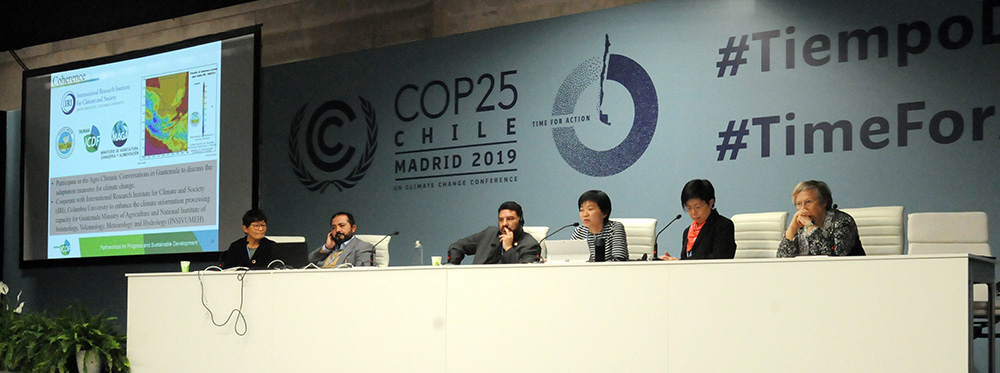
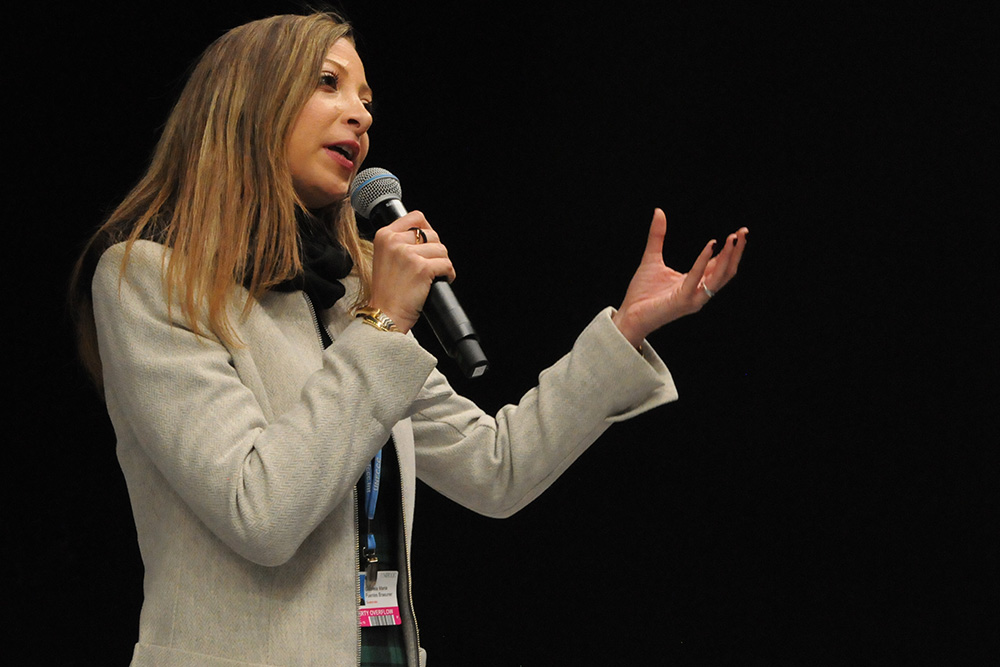
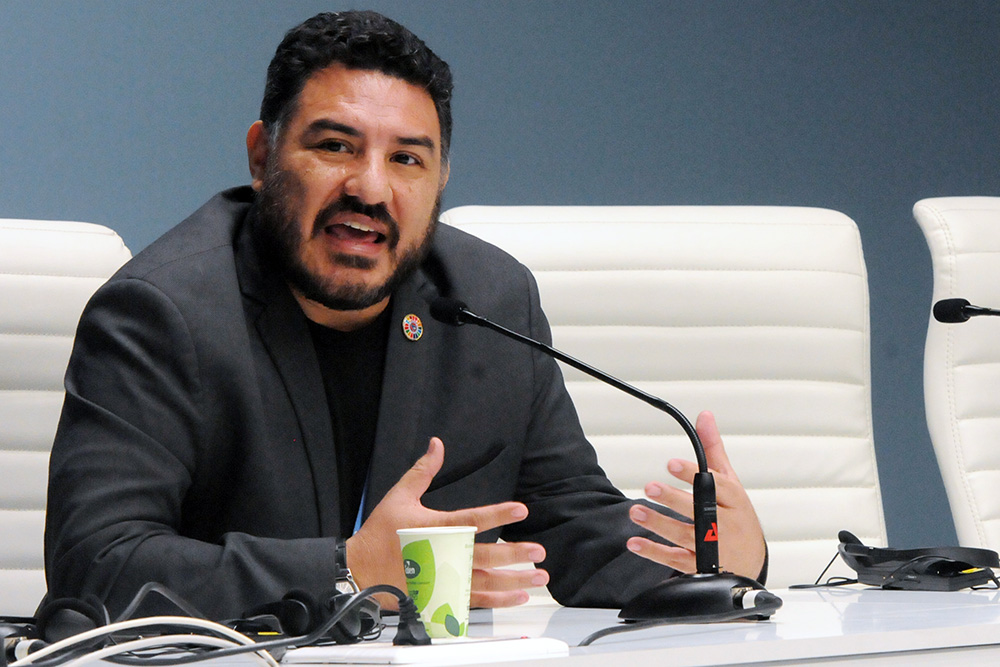
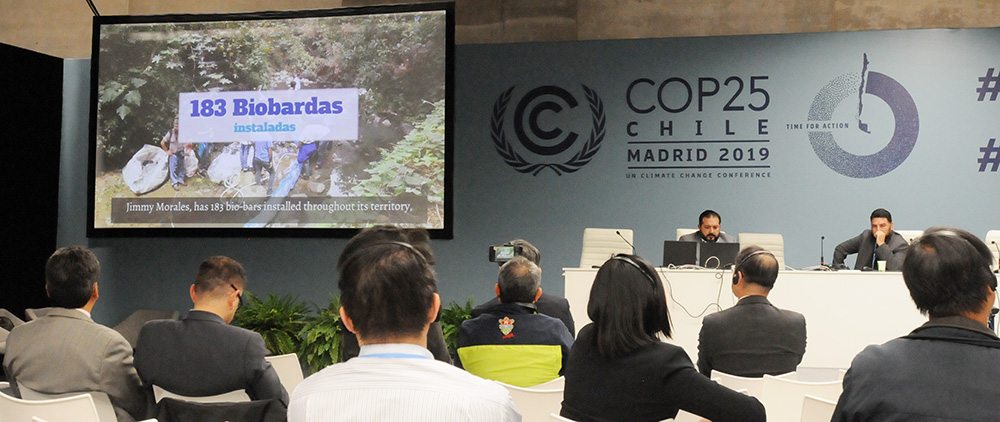
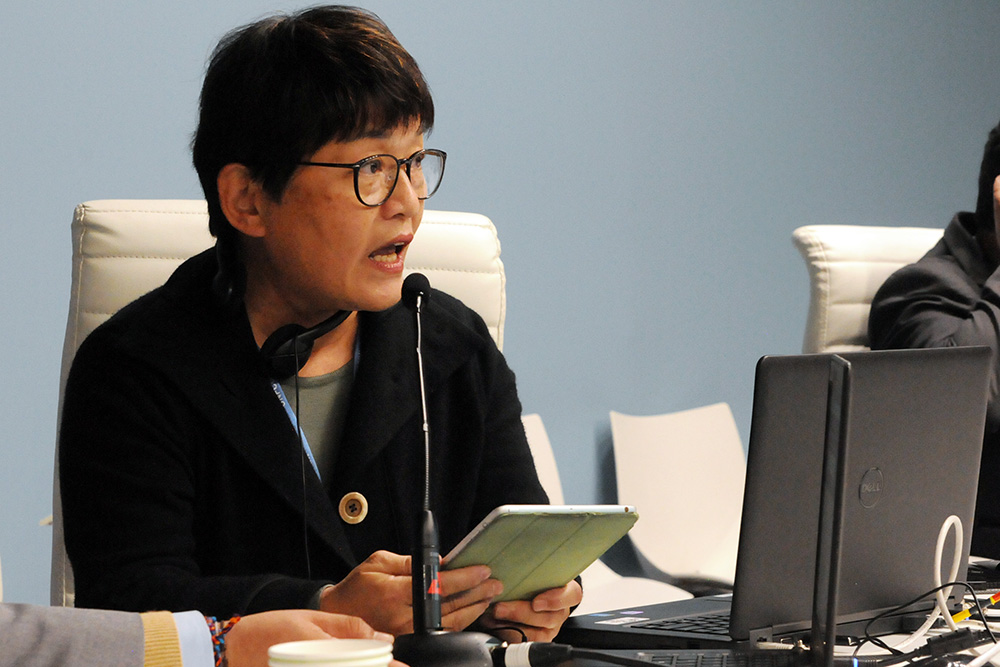
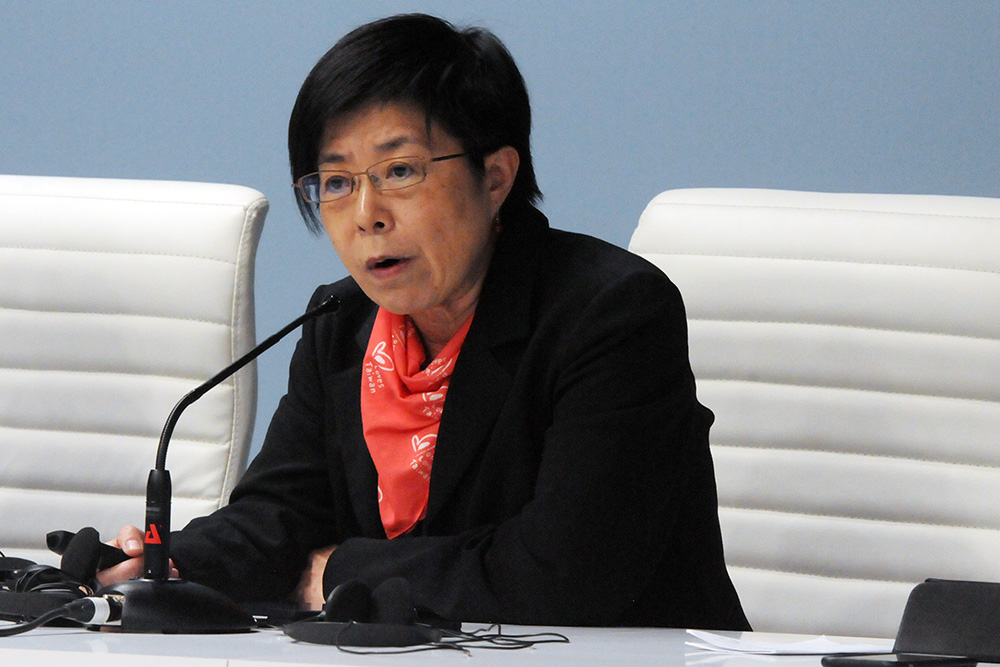
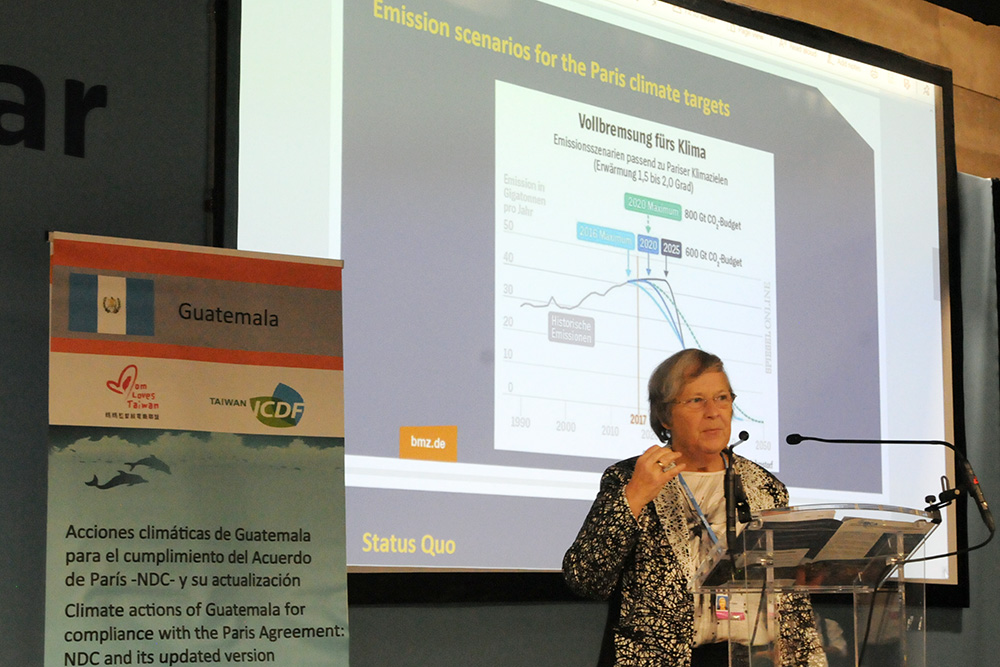
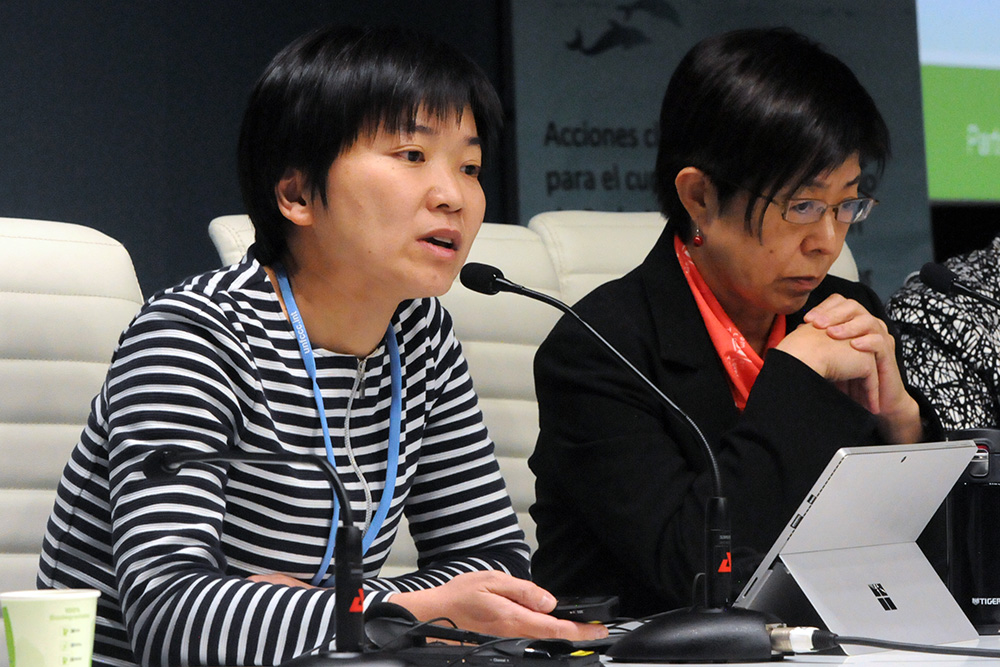
Climate and SDGs Synergy Approach - Achieving Decarbonized Societies and Securing Human Wellbeing
Presented by the Ministry of Environment, Japan; the Institute for Global Environmental Strategies (IGES); the UN University Institute for the Advanced Study of Sustainability (UNU-IAS); the UN Department of Economic and Social Affairs (DESA); and the UN Framework Convention on Climate Change (UNFCCC) Secretariat
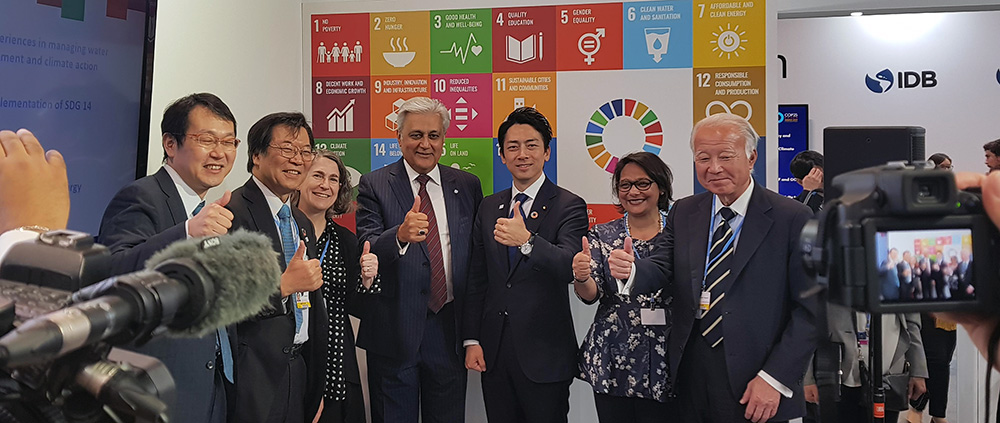
This event was organized to follow up on the first Climate and SDGs Synergy Conference, which the UNFCCC Secretariat and UN DESA organized in Copenhagen, Denmark, in April 2019. Speakers discussed measures to strengthen synergies that will bring about integrated efforts on climate change and the Sustainable Development Goals (SDGs).
Satoru Morishita, Vice-Minister for Global Environmental Affairs, Ministry of the Environment, Japan, opened the event, highlighting the importance of addressing the linkages between climate and the SDGs.
Liu Zhenmin, UN Under-Secretary-General for Economic and Social Affairs, highlighted the linkages among the SDGs, the Paris Agreement, the Sendai Framework for Disaster Risk Reduction (DRR), and the Aichi Biodiversity Targets, and emphasized the importance of the Climate and SDGs Synergy Conference for advancing dialogue on this issue.
Kazuhiko Takeuchi, President, IGES, discussed the need to integrate changes into local-level actions and lifestyles, and presented a conceptual framework for addressing these changes. He announced that IGES and the UNFCCC are expanding their collaboration on issues related to climate adaptation and climate finance.
A panel discussion was moderated by Kazuhiko Takemoto, Former Director, UNU-IAS.
Mami Mizutori, Special Representative of the UN Secretary-General for DRR and Head of the UN Office for DRR (UNDRR), highlighted the value of a synergistic approach in preparing national and local DRR strategies and national adaptation plans. She also noted the benefits of collaboration on data collection and integrating disaster risk and climate risk assessments into decision making for infrastructure.
Jyoti Mathur-Filipp, Director, Implementation Support Division, CBD, highlighted that the UNFCCC and CBD were “born” on the same day and that the biodiversity and climate crises are mutually reinforcing challenges. She reviewed the process through which the post-2020 global biodiversity framework is being negotiated, noting that it will be a 30-year framework, and stressed the need for political will at CBD COP 15, which will take place in the latter half of 2020.
Lynn Wagner, Senior Director, Tracking Progress Programme, International Institute for Sustainable Development (IISD), stressed the importance of: learning to address issues through a systems thinking approach; highlighting lessons learned in success stories as a way to promote more synergistic approaches; and promoting opportunities for new collaboration that can arise through the process of collecting and assessing SDG data and indicators.
Boyd Dionysius Jouman, Head, Environment Division, Iskandar Regional Development Authority (IRDA), Malaysia, discussed how to “sell” that SDGs at the local level, stressing the need to use language that local communities understand and to explain how these communities can live in harmony with nature.
During a discussion, participants discussed the role of insurance in driving change and the role of inequality as a driver of both climate change and biodiversity. Takeuchi concluded the discussion, highlighting the need for appropriate data to understand where regions stand and where priorities and shortcomings should be addressed. Ovais Sarmad, Deputy Executive Secretary, UNFCCC, highlighted the interest in continuing the Climate and SDGs Synergy Conference series, and the need to ensure that updated NDCs benefit from synergistic action.
Shinjiro Koizumi, Minister of the Environment, Japan, announced that Japan would host a “Circular Economy – Davos” event in the first half of 2020, and an event on international climate change and DRR in March 2020. He reviewed efforts to carry forward the G7 Osaka goal of reducing marine plastic litter. Koizumi also said Japan would like to host the third Climate and SDGs Synergy Conference in 2021.
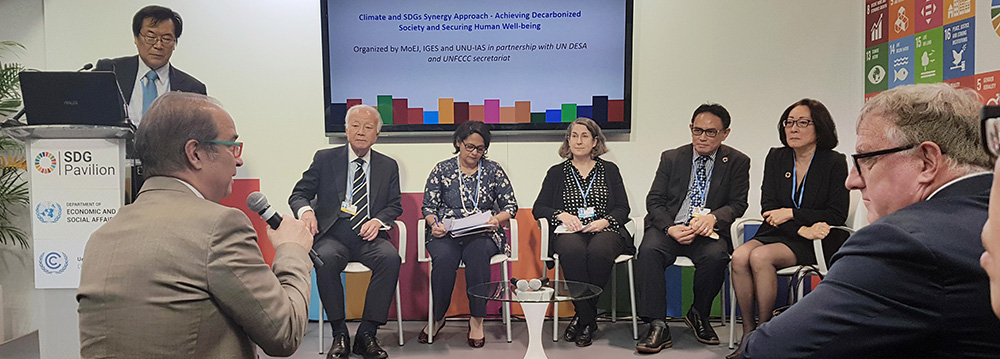
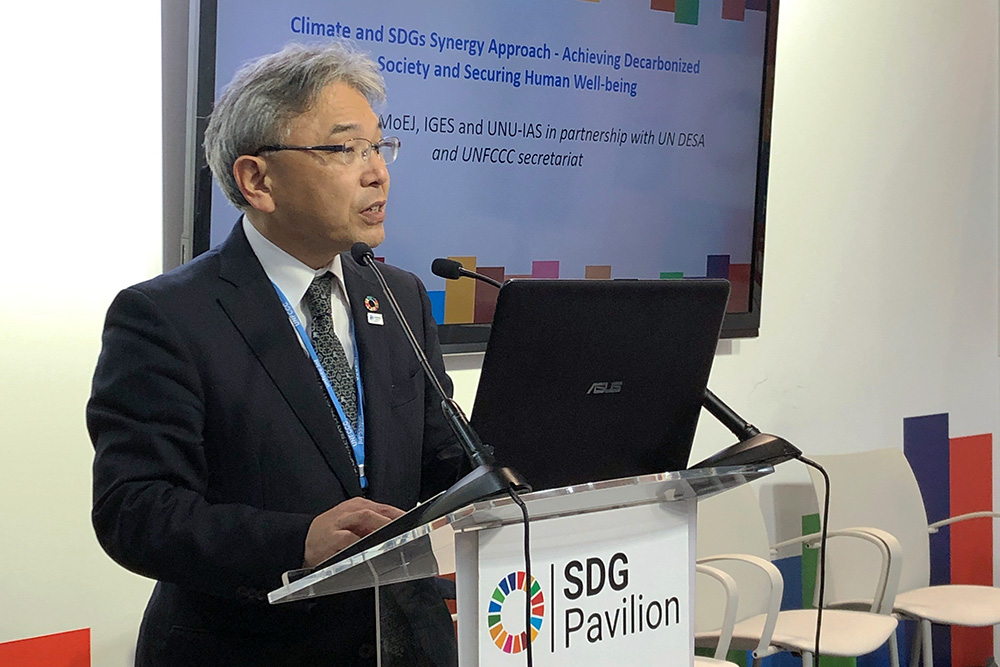
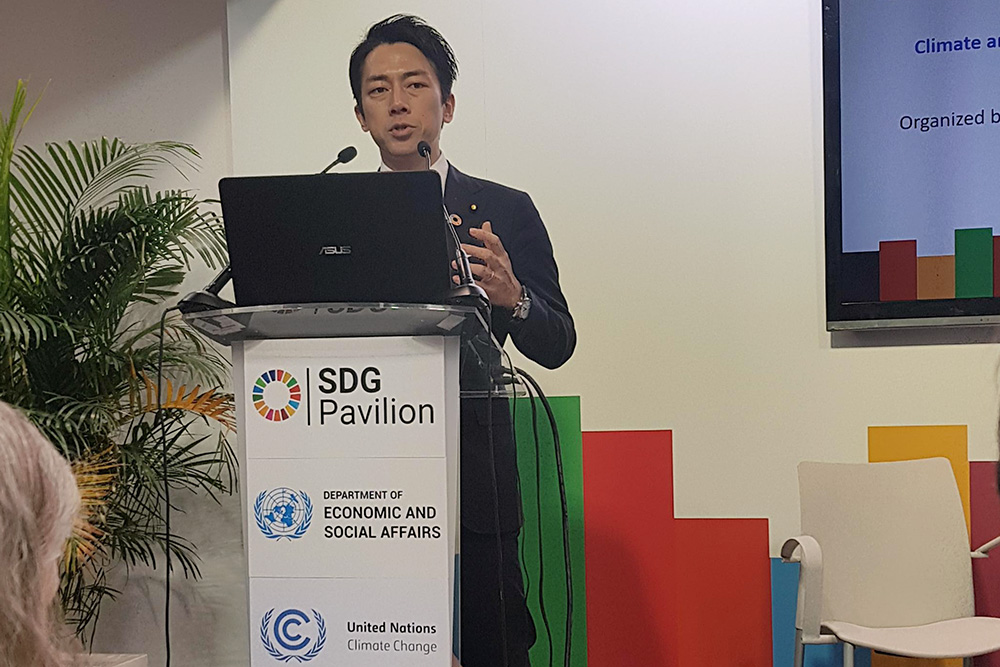
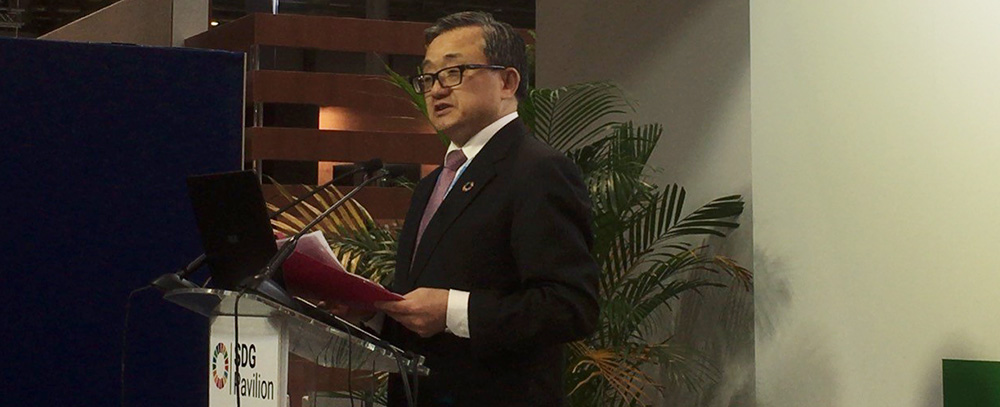
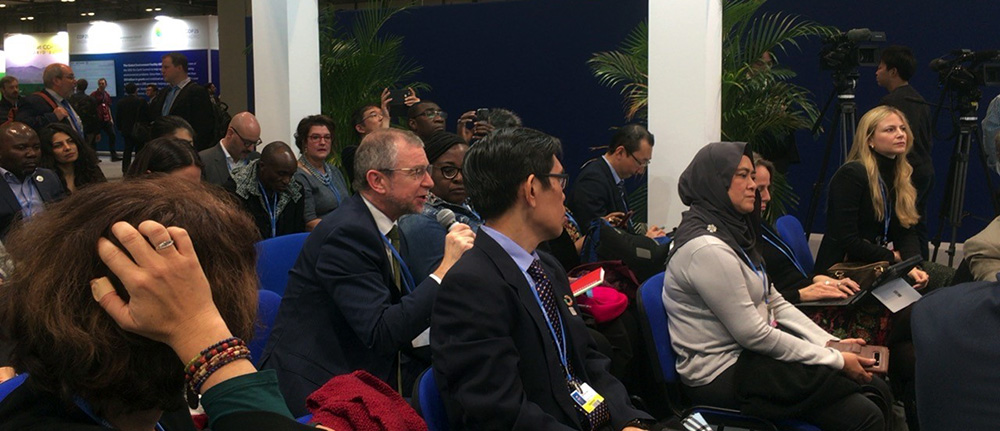
Around the Venue
